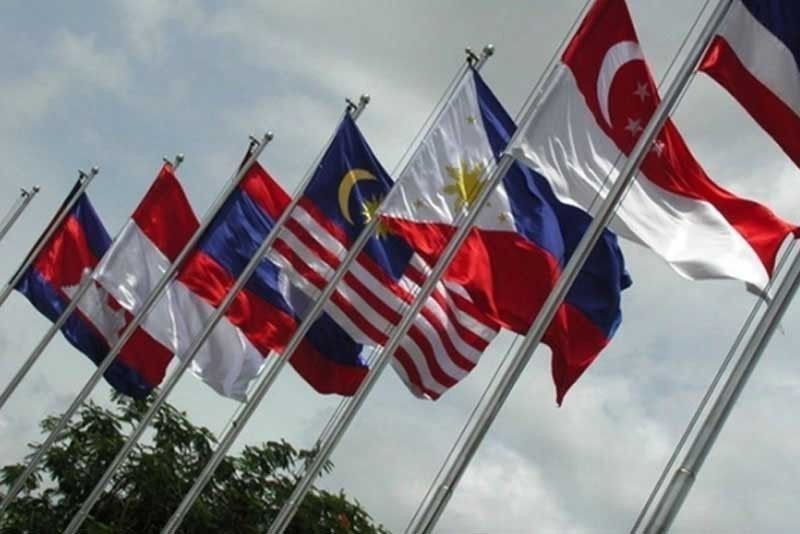ASEAN, SoKor reaffirm denuclearization stance

BUSAN – The Association of Southeast Asian Nations (ASEAN) and South Korea have reaffirmed their support for complete denuclearization in the Korean Peninsula and the peaceful resolution of disputes in accordance with international law.
In a joint statement issued on the last day of the ASEAN-Republic of Korea Commemorative Summit, the regional bloc and the east Asian country noted that peace and stability in Southeast Asia are linked to that of Northeast Asia, including the Korean Peninsula. They agreed to strengthen regional cooperation for peace and stability by continuing their coordination and supporting ASEAN centrality and ASEAN-led mechanisms.
ASEAN and South Korea yesterday also vowed to promote and facilitate dialogue and cooperation “to support complete denuclearization and the establishment of permanent peace on the Korean Peninsula in a peaceful manner.” ASEAN said it was ready “to continue to play a constructive role” in contributing to peace and stability on the Korean Peninsula.
Tensions gripped the peninsula after North Korea conducted a series of ballistic missile tests to show off its nuclear capabilities. Last year, North and South Korea, which are still technically at war because the 1950s Korean War ended with just an armistice, not a peace treaty, vowed to work together to denuclearize the Korean Peninsula.
However, negotiations between North Korea and the United States hit a snag after Washington opposed a demand to relax sanctions slapped on Pyongyang in exchange for partial dismantling of its nuclear program. North Korean leader Kim Jung-un has proposed a mutually acceptable arrangement by the end of the year.
President Duterte also expressed support for the peaceful resolution of the Korean Peninsula conflict during his bilateral meeting with South Korean President Moon Jae-in.
“He (Duterte) said we support South Korea in its problem in the Korean peninsula,” Defense Secretary Delfin Lorenzana said in a chance interview yesterday here.
“We express our support. We can’t do anything because we are not a nuclear power. Just the fact that we support the denuclearization of the Peninsula, I think, is a strong action from our side,” he added.
Moon urged ASEAN member-states to constantly deliver a “unified message” to the United States and North Korea on the need for early resumption of the nuclear talks.
He cited the importance of “accumulating concrete accomplishment” by creating a “framework for sustainable dialogue” and building trust among parties concerned to remove hostilities in the peninsula, which have lasted for seven decades.
Freedom of navigation
Although there was no mention of the South China Sea dispute in their joint statement, ASEAN and South Korea affirmed the importance of freedom of navigation and law-based resolution of disputes.
They agreed to “enhance... maritime security and safety, freedom of navigation in and over-flight above the region and other lawful uses of the seas and unimpeded lawful maritime commerce.”
ASEAN and South Korea also vowed to promote peaceful resolutions of disputes in accordance with universally recognized principles of international law, including the 1982 United Nations Convention on the Law of the Sea.
Lorenzana confirmed the South China Sea row was not mentioned during the bilateral meeting of Duterte and Moon.
China claims about 90 percent of the resource-rich South China Sea while the Philippines, Vietnam, Malaysia, Brunei and Taiwan have overlapping claims.
China prefers to settle maritime disputes through bilateral negotiations, believing that the issue will become complicated if outsiders, including international tribunals, are allowed to intervene.
In 2016, the Philippines secured a legal victory against China when an arbitral court based in The Hague invalidated Beijing’s expansive maritime claim in the South China Sea. As part of his policy of appeasement toward China, Duterte vowed to set aside the ruling.
ASEAN and South Korea also vowed to boost cooperation to address traditional and non-traditional security challenges like transnational crime, terrorism and violent extremism and to further strengthen cyber security cooperation.
They also agreed to build a “people-centered community of peace and prosperity” through freer movement of goods and services, mutual understanding, people mobility and cultural exchanges.
In Manila, shortly after Duterte’s arrival from South Korea last night, Malacañang reported that the President called for more strategic and preventive collective action to address threats to regional peace and security, including terrorism and violent extremism, drug trafficking, piracy and other maritime security issues, marine conservation and climate change-related issues.
It was during a special retreat session on the Korean Peninsula issue where Duterte expressed his view that “no military solution” can solve “a fraternal conflict.”
“Only dialogue, based on mutual trust and respect, can lead to ‘a Korea at peace with itself and without nuclear weapons’,” the Palace statement said, quoting the President.
- Latest
- Trending



























